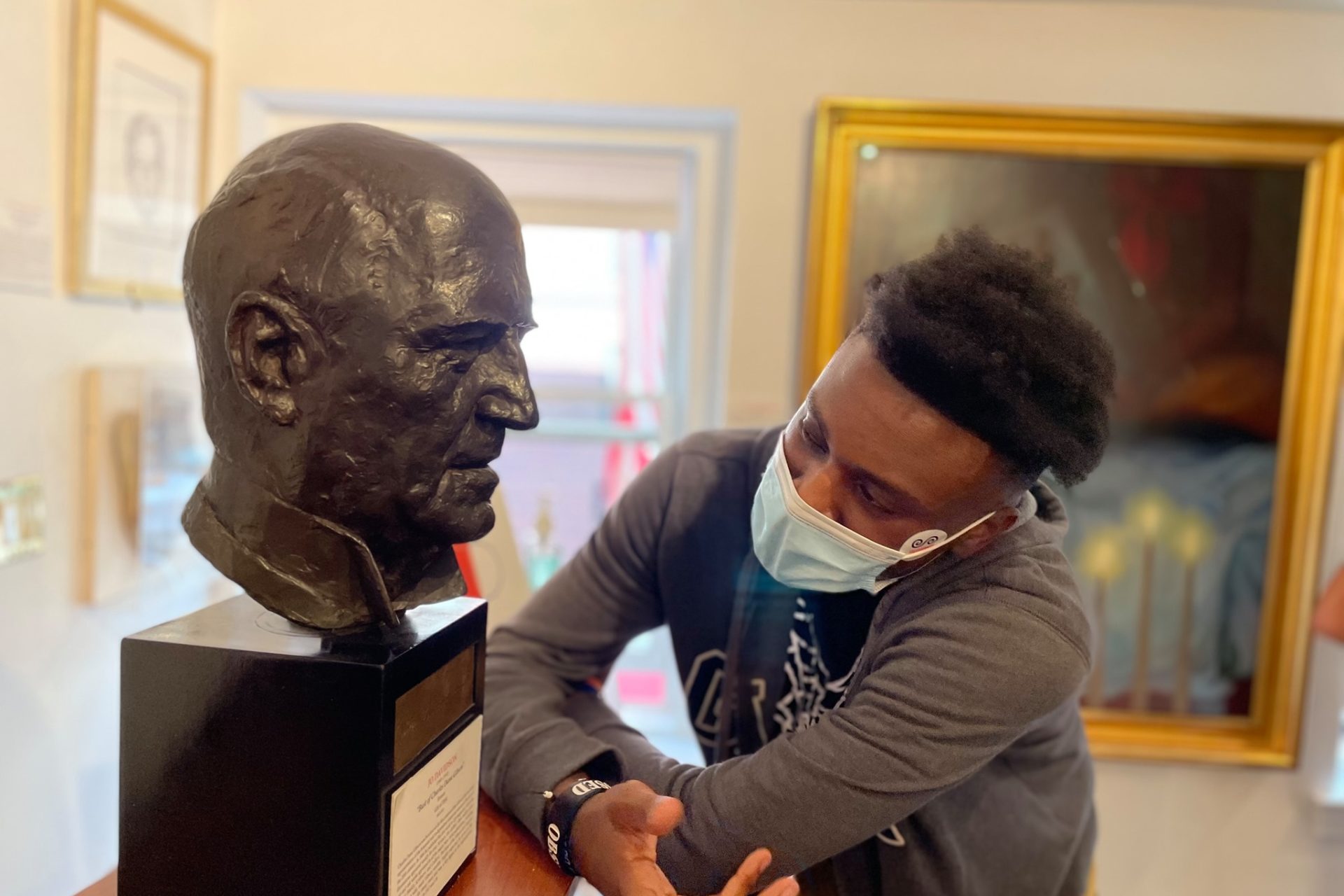
“My mom told me I should get a better-paying job this summer,” revealed Micah. “She thinks I can make more at another job.”
As a 17-year-old adolescent, Micah confronts a moral conundrum. On many levels it seems unfair. While some kids his age are deciding between tennis camp or a month at the Jersey Shore, Micah chooses between two jobs. One provides more economic relief for his family. The other job aligns more closely with his evolving values. His choice has nothing to do with teen rebellion. Micah loves his mother deeply.
So our program team were a little surprised to see Micah submitting his application for a summer job with UrbanPromise. You probably guessed we’re not the highest-paying teen employer in the area.
“I thought you weren’t applying?” questioned our StreetLeader Director. “You’re not listening to your mother?”
“It’s a tough decision,” shared Micah. “But I told my mom I like who I am at UrbanPromise.”
Those words caught my attention. Actually stopped me in my tracks, challenging me to pause and ponder. I was witnessing a level of self awareness I seldom see in teenagers—or in adults for that matter. Micah’s job decision was not based on someone’s expectation for him or economic practicality. His decision was predicated on an understanding of how he reacts to a particular environment and a particular kind of work. So let’s unpack these words and discover a lesson for our own lives.
Micah “likes” who he is—and gets to be—working at our ministry. He even values this feeling over the prospect of making more money. Being a mentor for younger children in the community, the pride of purposeful work, working on a team who affirm his potential daily allows him to wake up each morning and feel good about the life he is living. Is there a cost to his decision? Absolutely. But at age 17, Micah is willing to pay a price for this choice.
To me, Micah is listening and honoring something deep within his being. Difficult to describe in words. Some might disagree with me, saying he’s acting selfishly. Some may say Micah’s not being biblical—after all, there’s a verse about children “obeying your parents”. I actually believe Micah is developing a healthy pattern of being true to his moral convictions. I call this alignment…integrity.

The word integrity evolved from the Latin word integer, meaning whole or complete—unbroken completeness. You probably remember Integers from your algebra class. Those tricky whole numbers could be positive, negative, or zero.
People with integrity are whole people—not fractions of themselves. Alignment between our private and public selves, words and behaviors, values and goals creates a kind of “unbroken completeness”.
Perhaps this is why 70% of Americans don’t like what they do every day of their lives—85% globally. A lack of connection between values and vocation creates fragmentation. “Fractioned” people aren’t necessarily happy people.
So we arrive back to our Lenten journey and encounter a rather disturbing and revealing story about Jesus. In his final visit to Temple before securing a donkey and riding to Jerusalem, Jesus starts flipping furniture. Instead of quietly reciting his prayers, dropping a few coins in the offering plate and honoring the local priests, Jesus gets annoyed by the incongruity he witnesses. Co-opted by economic opportunists, this sacred place has lost its integrity. Lost is the moral authority. Lost, it’s wholeness. “My house will be called a house of prayer,” says Jesus. “But you are making it a den of robbers.” A fracturing has taken place. Flipping tables is a reminder that God’s purpose needs to align with words, intent and action—a consistent theme through all Jesus’ teachings.
“There are different kinds of voices calling you to different kinds of work,” reflects Frederick Buechner, writing on integrity. “And the problem is to find out which is the voice of God rather than of society, say, or the super-ego, or self-interest.” He continues, “By and large, a good rule for finding out is this: The kind of work God usually calls you is the kind of work: a) that you need most to do and b) that the world most needs to have done…the place God calls you is the place where your deep gladness and the world’s deep hunger meet.”
Seems Micah has discovered this “deep gladness”. By choosing the kind of work he most needs to do and the work God most needs him doing, Micah has given “careful thought” to the path on which he walks. That’s worth noticing.
Bruce Main
Founder & President
